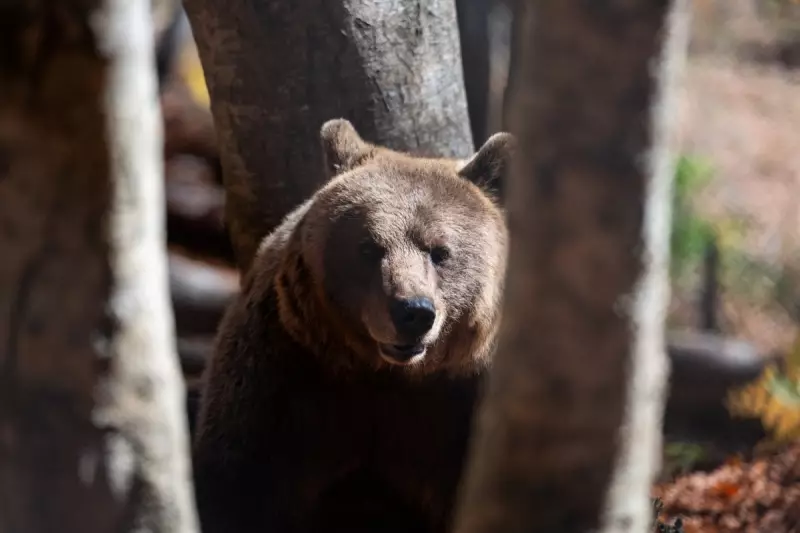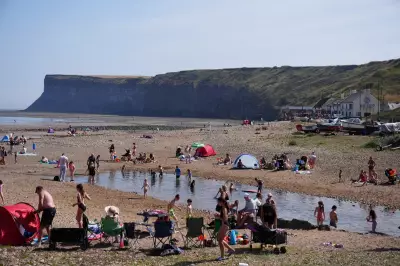
Farmers and residents in rural Greece are facing an unprecedented challenge as populations of brown bears and wolves surge, leading to increased and often frightening encounters.
A Shocking Discovery for Farmers
The grim reality of this growing conflict was brought home to farmer Anastasios Kasparidis when he discovered three of his sheep dead, unmistakably mauled by a predator. Large paw prints in the earth confirmed his fears: a bear was responsible.
"It was a bear, a very big one, and they come often now," Kasparidis stated, noting that another local farmer had lost chickens and pigs. Fearing for his livelihood, he made the decision to move his remaining flock into a pen near his house for protection. "Because in the end I wouldn't have any sheep. The bears would eat them all."
Conservation Success Story Sparks Tension
This situation is a direct result of successful conservation. The protected species designation, which banned hunting, has allowed brown bear numbers to make a remarkable comeback. Professor Dimitris Bakaloudis, a wildlife management specialist at the Aristotle University of Thessaloniki, confirmed that their numbers have increased roughly fourfold since the 1990s.
According to the most recent survey by the environmental organisation Arcturos, up to an estimated 870 brown bears now roam the forests of northern Greece.
It's not just bears. Wolf populations are also burgeoning and expanding their territory. Professor Bakaloudis explained that while in 2010 wolves were only found as far south as central Greece, they have now spread to the outskirts of Athens and into the Peloponnese in the south.
This predator recovery is partly sustained by another booming population: wild boars. Their rise is unrelated to conservation but driven by a reduction in hunting, milder winters, and cross-breeding with domestic pigs. Now viewed as pests, sightings of a dozen or more boars in villages and even urban areas are commonplace.
Rising Fear in Rural Communities
The increased animal numbers have led to more frequent and sometimes dangerous contact with humans. A series of serious incidents in 2025 has heightened fears, including a child being bitten by a wolf, an elderly man injured by a bear in his yard, and a hiker who died after falling into a ravine during a bear encounter.
In the village of Levea, community president Tzefi Papadopoulou reported several bear encounters in October. "As soon as they heard a dog bark, they were ready to go out with the gun," she said, describing the heightened anxiety among residents.
The sentiment is echoed in the nearby village of Valtonera. "The village used to be without wild animals. In the past, a wolf would appear once in a while," said community president Konstantinos Nikolaidis. "This has caused concern among all residents. It's now difficult for a person to walk around outside at night."
The situation has sparked calls for action. Giorgos Panagiotidis, deputy mayor of Amyntaio, requested that hunters be allowed to shoot boars out of season to tackle the encroachment problem. This mirrors a wider European trend, where EU lawmakers recently voted to reduce protections for wolves following pressure from farming communities.
Seeking Sustainable Solutions
Experts caution that the issue is complex. Panos Stefanou of Arcturos points to several contributing factors beyond rising animal numbers, including habitat loss from wildfires, noise disturbances, and the desertification of villages which makes inhabited areas more attractive to wildlife searching for food.
Professor Bakaloudis emphasises that non-lethal measures have been scientifically approved to keep predators at bay. These include using lights around property, ensuring proper disposal of trash and dead livestock, and avoiding feeding stray animals. In exceptional cases, such as the wolf attack on a child, authorities have resorted to capturing and removing the animal.
However, Stefanou issues a clear warning against simplistic answers to a multifaceted problem: "Killing the animals is not what will solve the problem." As Greece grapples with the consequences of its conservation victories, finding a balance between protecting its majestic predators and safeguarding its rural communities remains an urgent and delicate challenge.





